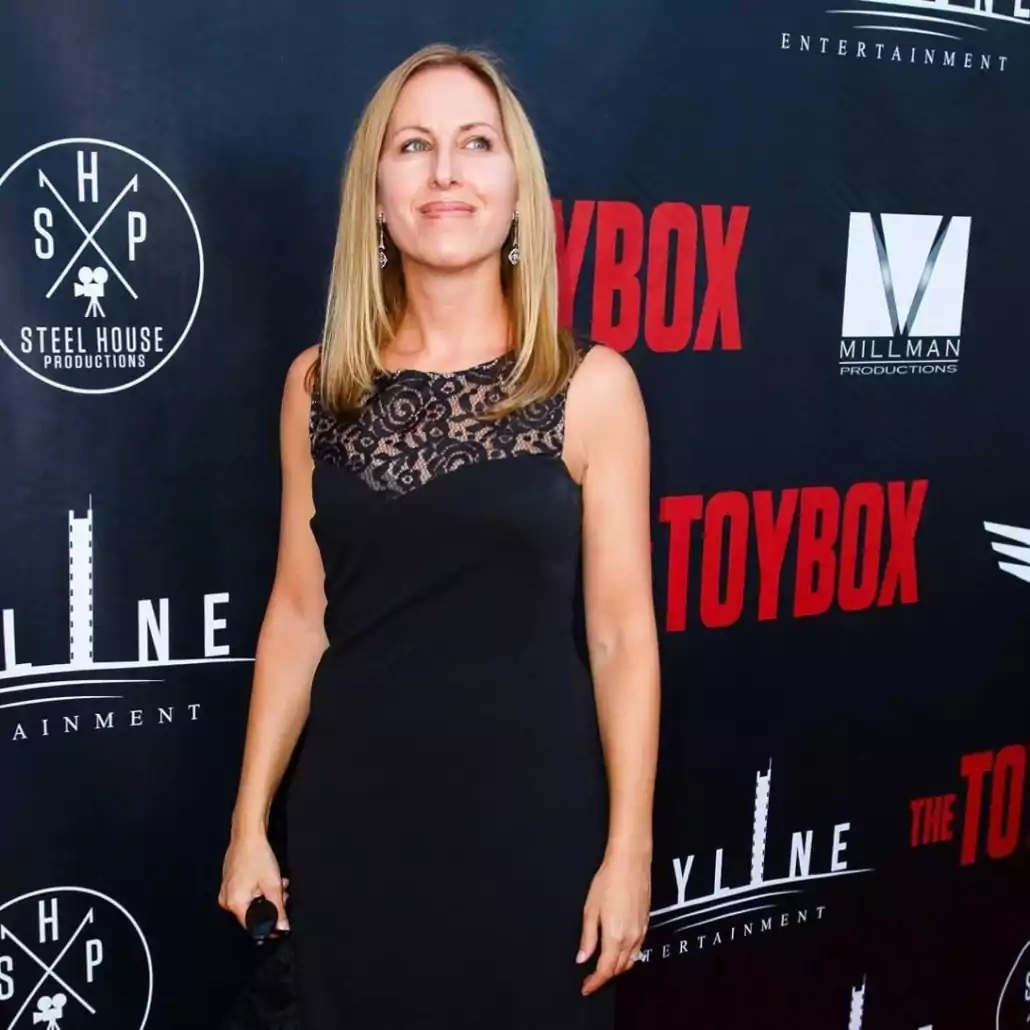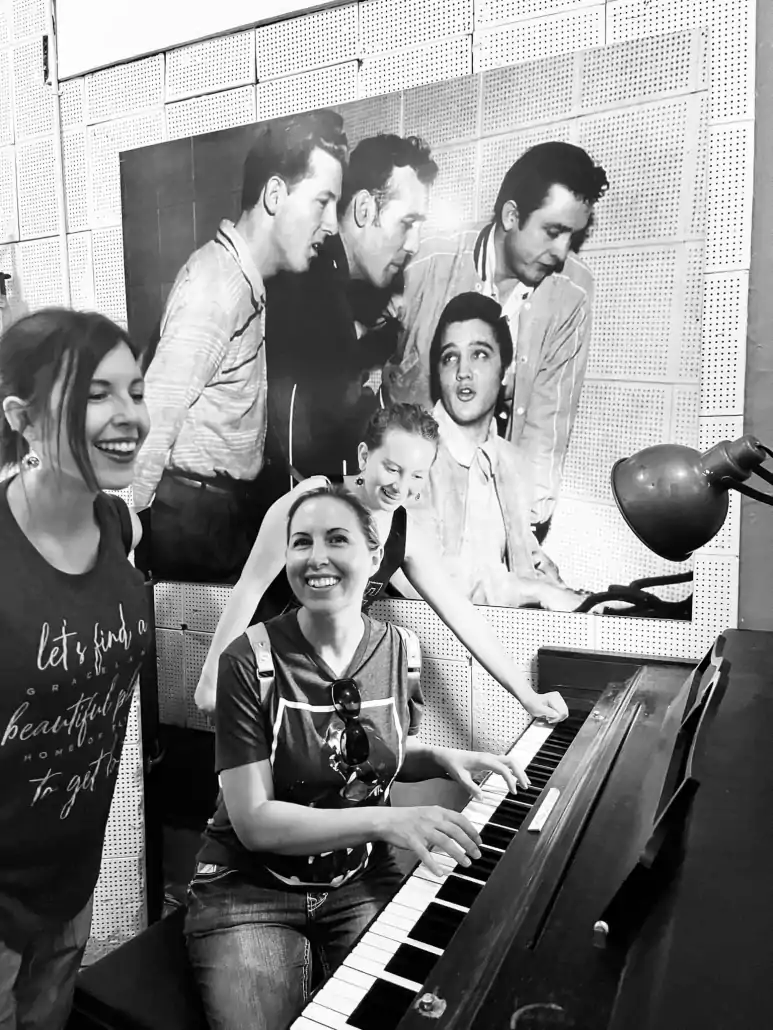Horror composer Thornton alum nominated for Emmy
Holly Amber Church’s work has been nominated for Outstanding Original Main Title Theme Music.
Holly Amber Church’s work has been nominated for Outstanding Original Main Title Theme Music.

Holly Amber Church is known as the “Scream Queen of Scoring.” Church, who graduated from USC in 2001, has an affinity for dark media and a flair for horror that has carried her far in the entertainment industry. Now, thanks to her hauntingly melodic opening to “Guillermo del Toro’s Cabinet of Curiosities,” the horror film and television composer has the title “Emmy-nominated” under her belt.
On the morning of the Emmy nomination livestream, Church didn’t know she’d been nominated in the category of Outstanding Original Main Title Theme Music until she was notified by her manager.
“[It was] very surreal … As I was watching [the livestream], my publicist texted me, ‘You got nominated,’ and I was like, ‘Wait, what? The livestream is still going, how do you know that already?’” Church said. “[When] I found it in print, I was so excited. I started getting phone calls from everyone. It was such a fun day.”
Church is no stranger to the unsettling; rather, she embraces it. With sinister titles such as “Open 24 Hours” (2018) and “Miranda’s Victim” to her name, Church has developed a reputation as a conjurer of everything creepy.
“[Scoring horror films] wasn’t necessarily what I set out to do,” Church said. “But I did one and I loved it. Then I started getting more and more movie offers that were all horror. So that’s just the path that happened. And I fully embraced it; I love it.”

Working on “Cabinet of Curiosities” was a dream come true for Church. Upon seeing the storyboard, Church immediately fell in love with how the first sequence “felt like a macabre ‘Masterpiece Theatre’” opening. Thanks to Church’s masterful, imaginative demo, producers offered her the opportunity to compose the title sequence.
Throughout her career, Church has worked with a myriad of different directors. Padraig Reynolds, director of “Rites of Spring” (2011) and “Open 24 Hours” (2018), has collaborated with her on multiple projects.
“[Church] is so easy to work with,” Reynolds said. “You can have the connection with people, they know what you want before you even say it. That’s her … When things click they just click and that’s why we used her for four movies.”
David DuBos, a film producer that Church worked with on films such as the documentary “Delta Justice: The Islenos Trappers War” (2015), echoed Reynolds’ sentiment, praising Church’s innate ability to know what a film score needs.
“[Church] is amazingly talented,” DuBos said. “She’s got a wide range of references and resources. When I had her do my documentary film on the Isleños … what she came up with in just two days was brilliant.”
Church completed a postgraduate certificate at Thornton School of Music in film scoring and recalls the impact her professors from the program had on her development as a composer. Christopher Young, an adjunct assistant professor of screen scoring, had a particular impact on Church’s career in scoring. Church drew inspiration for Young’s work in horror scoring.
Working as a woman in the entertainment industry, Church faced her own unique set of challenges while progressing through her career. Today, she’s excited for the future, pointing out a dramatic increase in women composers working on blockbuster projects.
“When I was at USC 20 years ago, there were only two other women in my class,” Church said. “I didn’t know very many [women] that were out there doing big movies. There was a handful you could talk about, but now, I’ve seen such a shift, and I love it. I have so many women composer friends now. They’re doing Marvel movies and Star Wars. I loved that shift.”
Though Church said she believes the industry can progress more for the future, she also celebrates how far it has come. Remembering the landscape of representation from two decades ago, she sees the past and present as incomparable.
“Statistics come out every year about [primarily] white men doing scoring. I don’t think that ever quite registered with me until the last few years. I just thought it was really hard [for women],” Church said. “I’m so happy to see the change happening now … There’s still more work to be done, but I’ve definitely seen progress.”
We are the only independent newspaper here at USC, run at every level by students. That means we aren’t tied down by any other interests but those of readers like you: the students, faculty, staff and South Central residents that together make up the USC community.
Independence is a double-edged sword: We have a unique lens into the University’s actions and policies, and can hold powerful figures accountable when others cannot. But that also means our budget is severely limited. We’re already spread thin as we compensate the writers, photographers, artists, designers and editors whose incredible work you see in our daily paper; as we work to revamp and expand our digital presence, we now have additional staff making podcasts, videos, webpages, our first ever magazine and social media content, who are at risk of being unable to receive the compensation they deserve.
We are therefore indebted to readers like you, who, by supporting us, help keep our paper daily (we are the only remaining college paper on the West Coast that prints every single weekday), independent, free and widely accessible.
Please consider supporting us. Even $1 goes a long way in supporting our work; if you are able, you can also support us with monthly, or even annual, donations. Thank you.
This site uses cookies. By continuing to browse the site, you are agreeing to our use of cookies.
Accept settingsDo Not AcceptWe may request cookies to be set on your device. We use cookies to let us know when you visit our websites, how you interact with us, to enrich your user experience, and to customize your relationship with our website.
Click on the different category headings to find out more. You can also change some of your preferences. Note that blocking some types of cookies may impact your experience on our websites and the services we are able to offer.
These cookies are strictly necessary to provide you with services available through our website and to use some of its features.
Because these cookies are strictly necessary to deliver the website, refusing them will have impact how our site functions. You always can block or delete cookies by changing your browser settings and force blocking all cookies on this website. But this will always prompt you to accept/refuse cookies when revisiting our site.
We fully respect if you want to refuse cookies but to avoid asking you again and again kindly allow us to store a cookie for that. You are free to opt out any time or opt in for other cookies to get a better experience. If you refuse cookies we will remove all set cookies in our domain.
We provide you with a list of stored cookies on your computer in our domain so you can check what we stored. Due to security reasons we are not able to show or modify cookies from other domains. You can check these in your browser security settings.
These cookies collect information that is used either in aggregate form to help us understand how our website is being used or how effective our marketing campaigns are, or to help us customize our website and application for you in order to enhance your experience.
If you do not want that we track your visit to our site you can disable tracking in your browser here:
We also use different external services like Google Webfonts, Google Maps, and external Video providers. Since these providers may collect personal data like your IP address we allow you to block them here. Please be aware that this might heavily reduce the functionality and appearance of our site. Changes will take effect once you reload the page.
Google Webfont Settings:
Google Map Settings:
Google reCaptcha Settings:
Vimeo and Youtube video embeds:
The following cookies are also needed - You can choose if you want to allow them:
